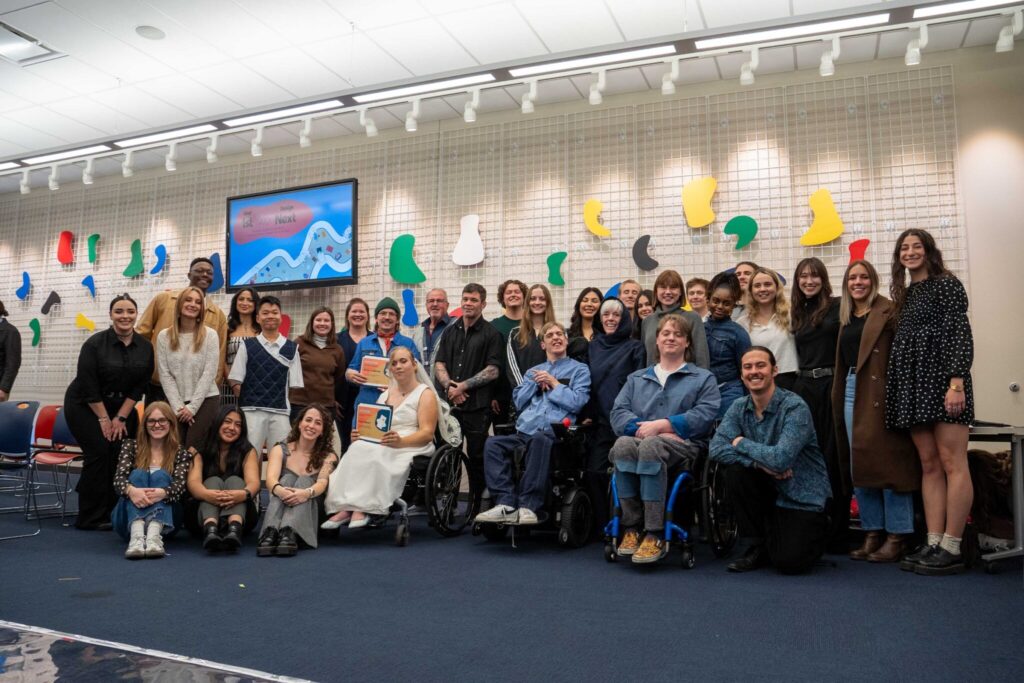
The students in Colorado State University’s Product Development Program in the Department of Design and Merchandising hosted their first fashion show this year, and it was unique in its human-centered inclusivity.
The program, led by Associate Professor Kristen Morris and Graduate Teaching Assistant Morgan Davis, has a long history of challenging students to design for underserved target markets, especially those with varied abilities such as people who use wheelchairs, people with prosthetic limbs, and other disabilities that affect their dress. This teaching work has even received recognition from the International Textile and Apparel Association for innovation in textile instruction.
While previous classes have hosted events showcasing the inclusive student design work, this is the first year the course has hosted a fashion show, titled “User 1st>>>Design Next.” Students worked with a specific person for the entirety of the semester, allowing them to not only solidify an in-depth understanding of the market’s needs through dedicated one-on-one feedback but also to address specific fit needs through model fittings and input from the wearer.
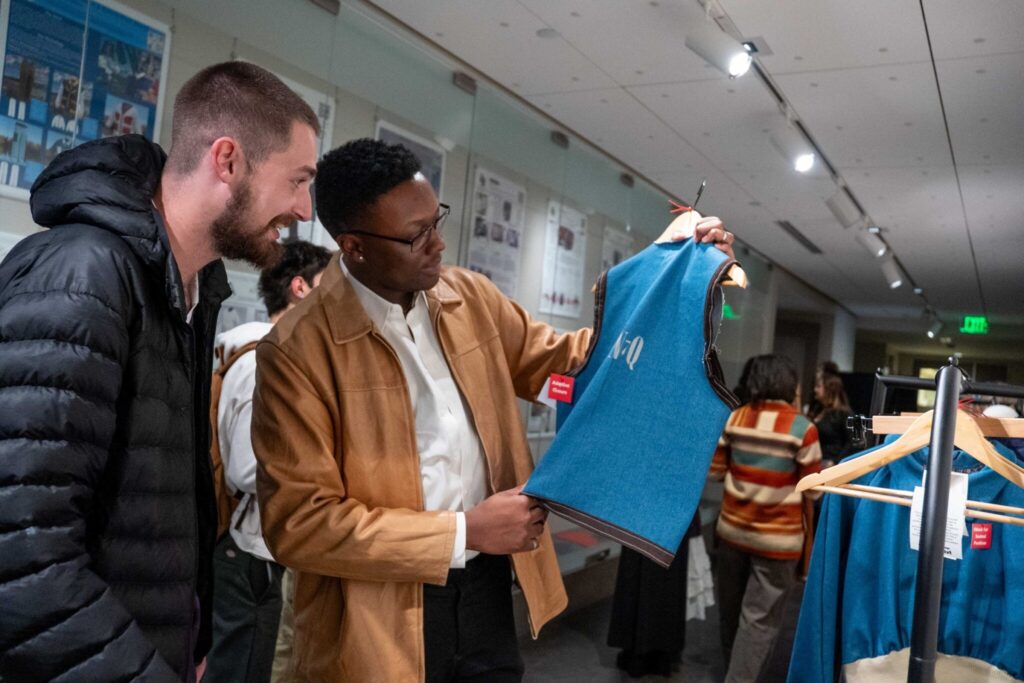
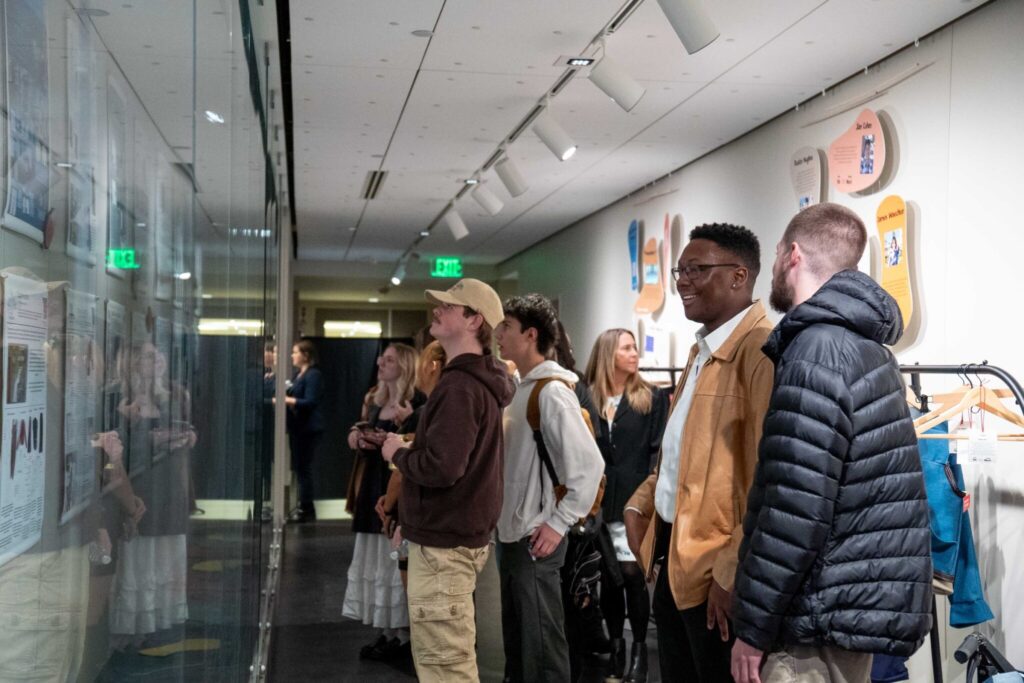
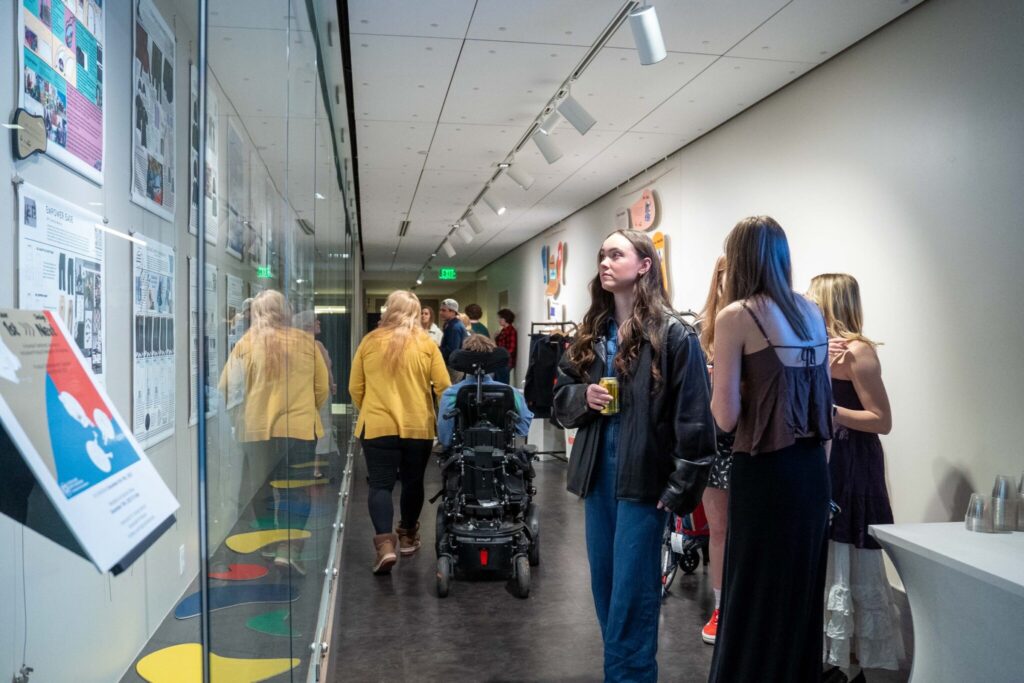
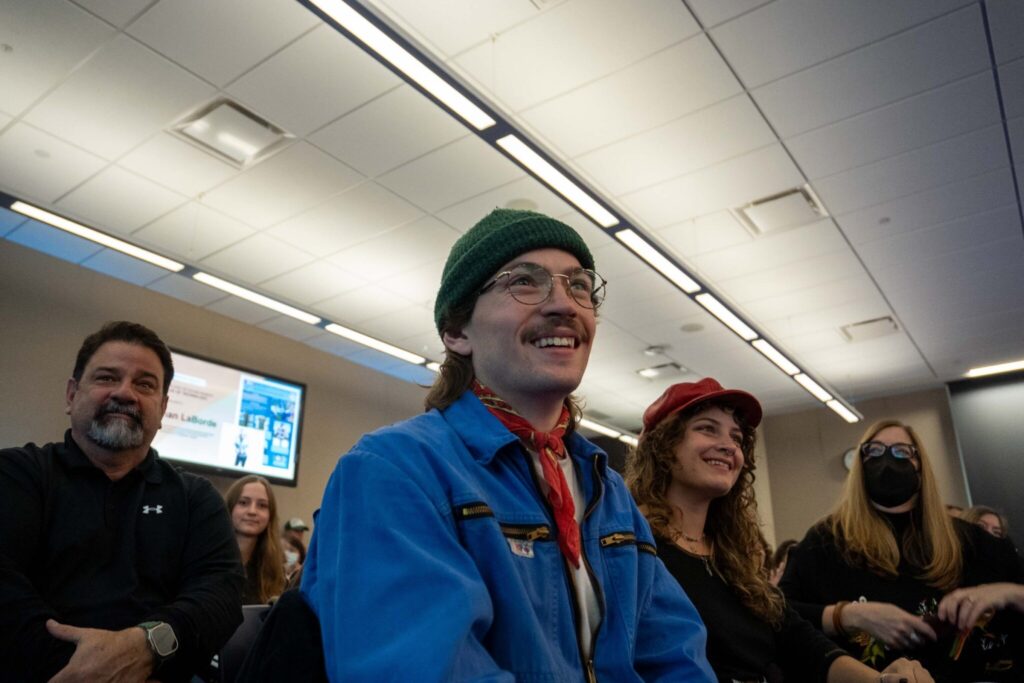
Models and participants
The participants in the program devoted a large amount of time throughout the semester to activities like focus groups, student concept presentations, fittings, and finally participation in the fashion show. This year the participants and fashion show models were Jian Cohen, Jim Hess, Tracy Hickey, Rustin Hughes, James Waechter, Libby Waechter, and Connor Walsh.
Cotton Technologies
The course challenged students to exemplify the primacy of user-centric design and underscore inclusivity by catering to diverse abilities through cotton-rich design solutions. They needed an in-depth understanding of cotton properties to use the textiles in innovative and meaningful ways.
The event was sponsored in full through a competitive grant presented to the Department of Design and Merchandising from Cotton Incorporated.
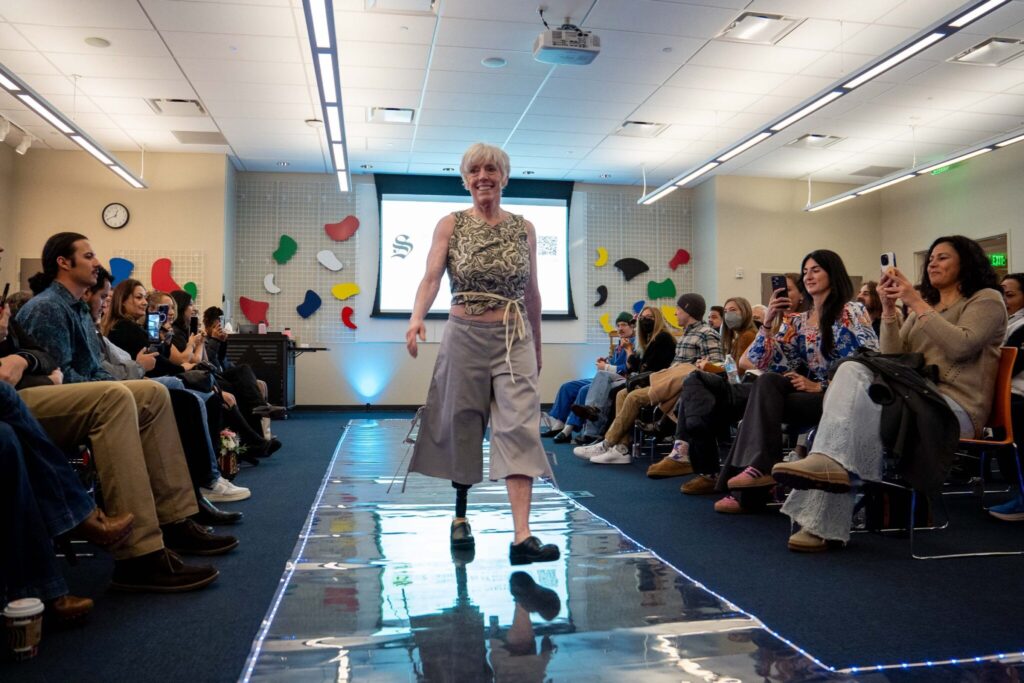
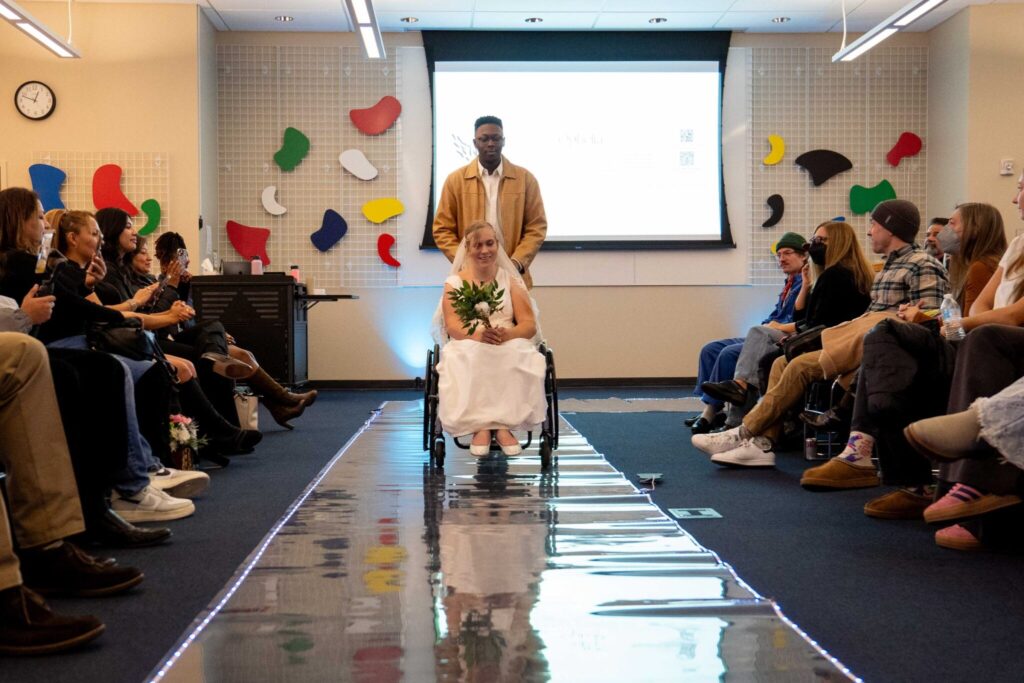
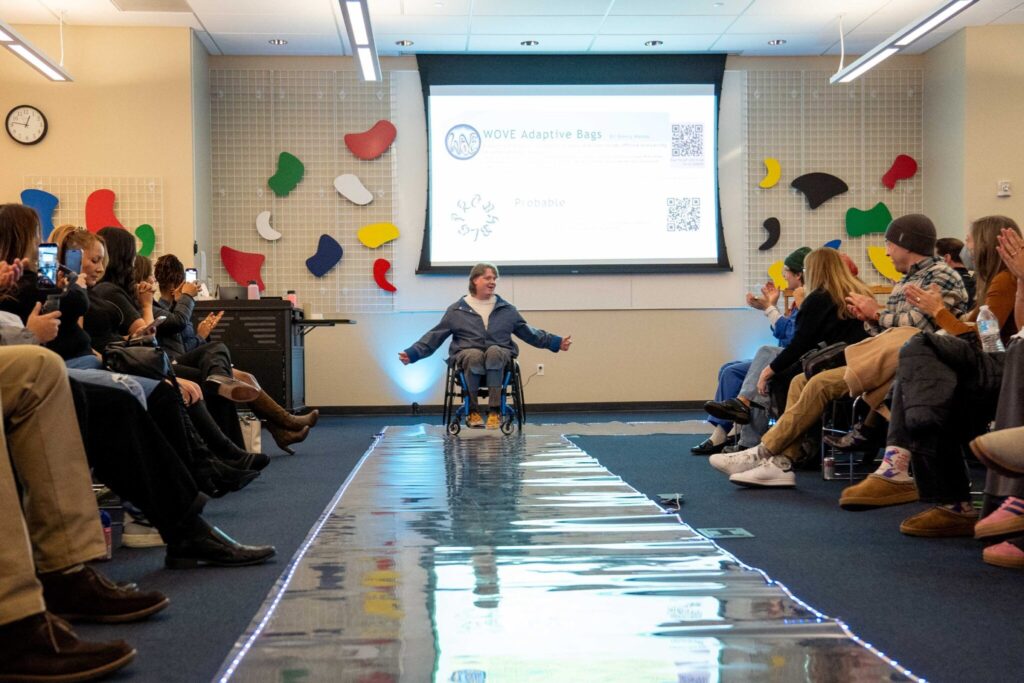
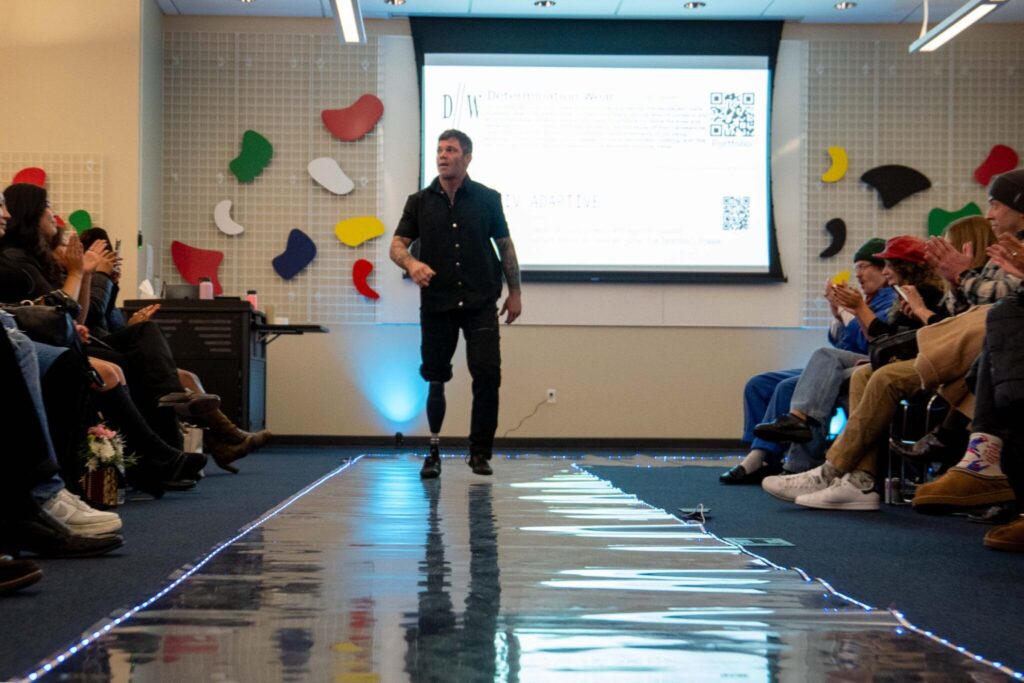
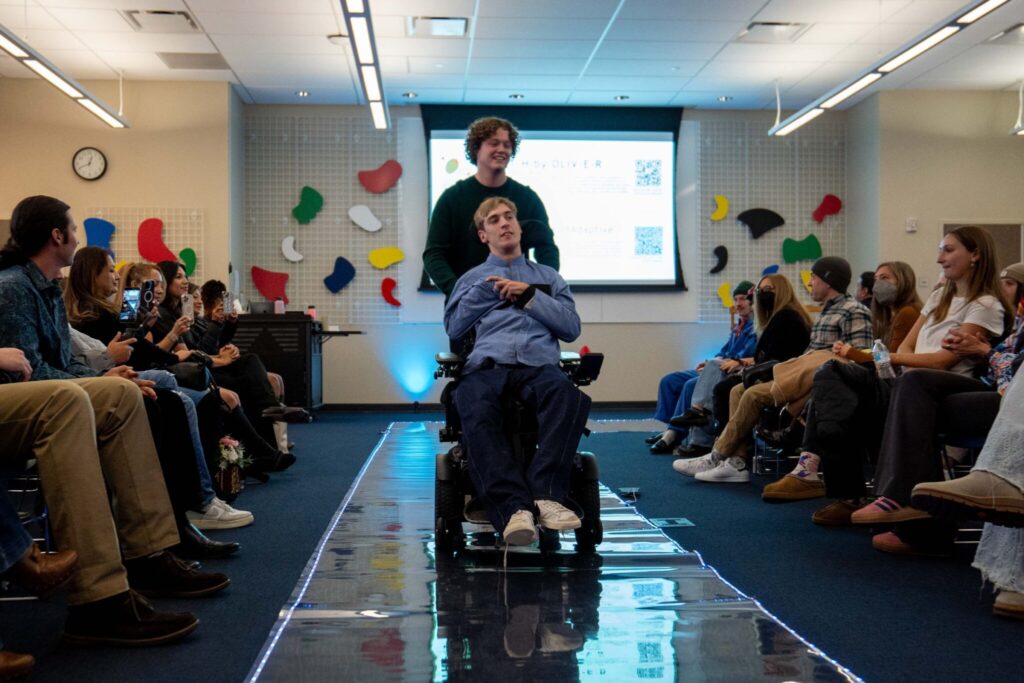
Award winners
Student projects were judged by a panel of experts in inclusive and accessible design. Thank you to this year’s judges: Ryan Perry (apparel and merchandising, ’22) (Obermeyer); Jennifer Lee (Cotton Incorporated); Rustin Hughes (participant and CEO of B-Bold Empowered Adaptive Living); Katie Waechter (participant and mother of James and Libby); Heath Olson (Tommy Hilfiger); Pixel Mikulich (apparel and merchandising, ’23) (Alexis Drake); and Ellie LaVia (apparel and merchandising, ’24), who won an award for her work in last year’s class.
Several students won awards this year. Congratulations to this year’s award recipients:
Best Use of Cotton Performance Technology – Henry Hanes, WOVE Adaptive Bags, a line of mounted bags for wheelchair users.
Best Use of Technology – Ethan Laborde for the Quick Release Run-it-Back Brand, a line of garments assisting with fine motor skills, dexterity, and mobility.
First Place – Ingrid Stocco for Ophelia, a collection of mix-and-match wedding attire optimized for those using wheelchairs for mobility assistance.
Second Place – Opal Koning for Unbound, a collection of workwear for those who use wheelchairs.
Third Place – Leslie Rivera for her product line titled Compos Mentis, sensory reduction garments.
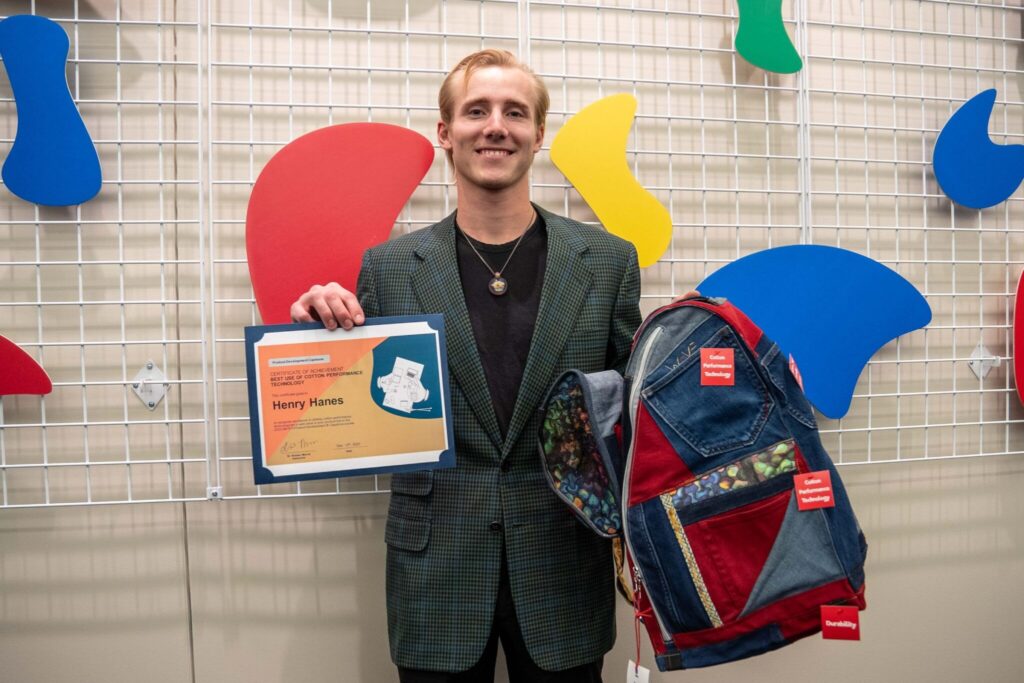
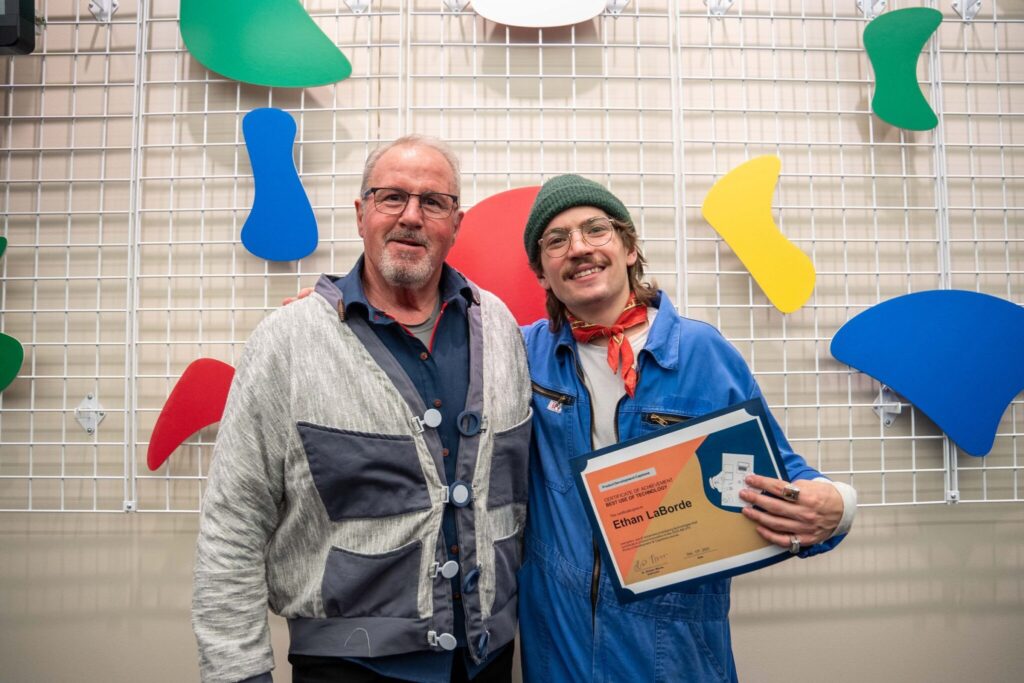
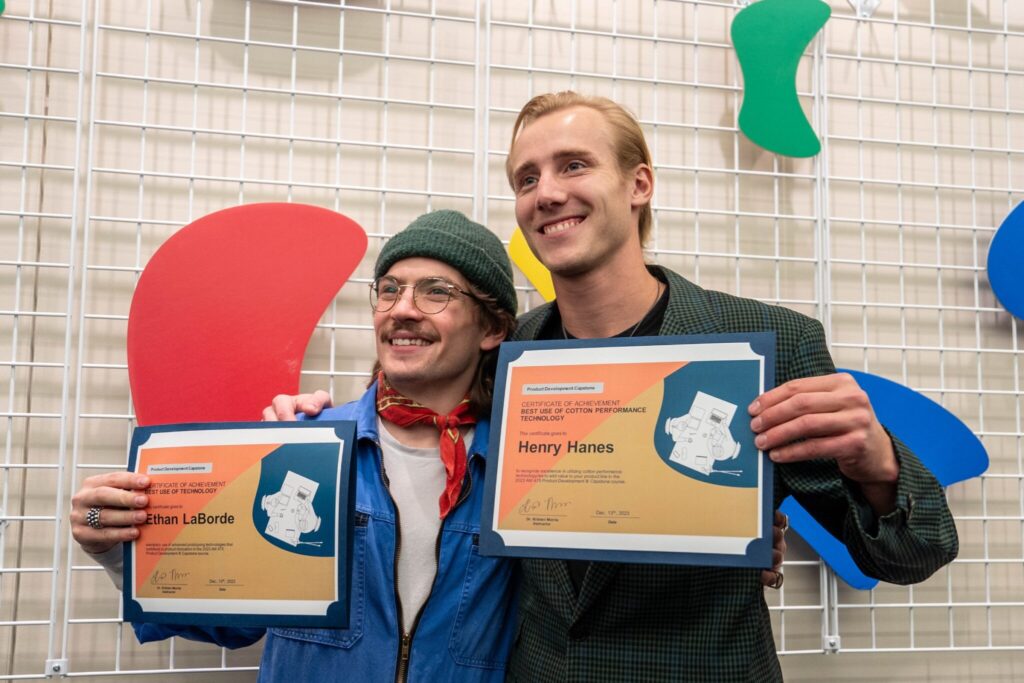
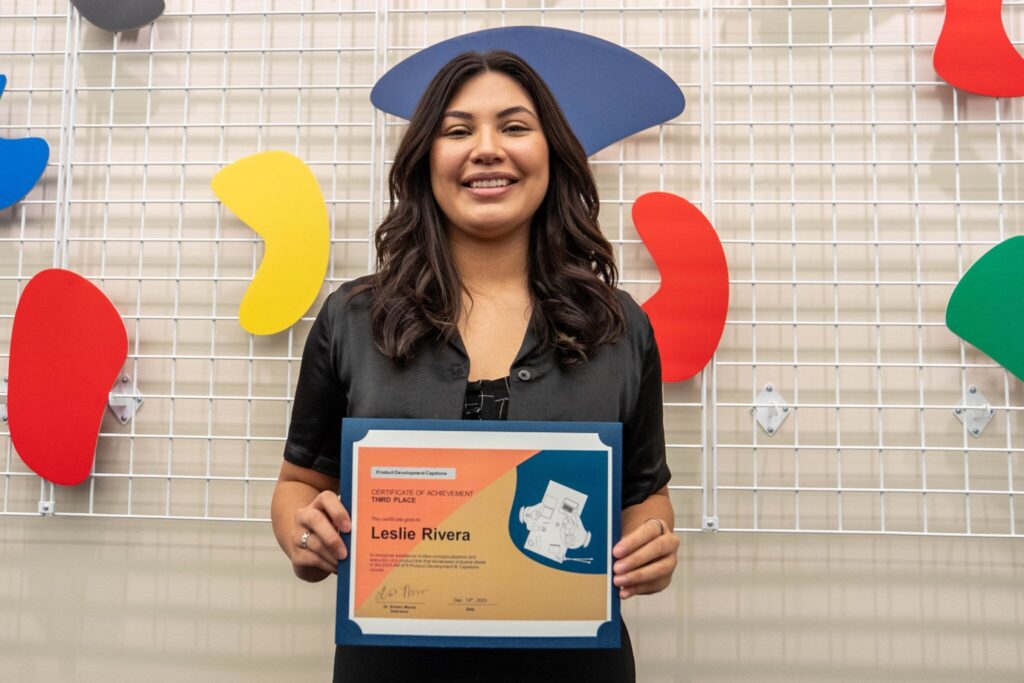
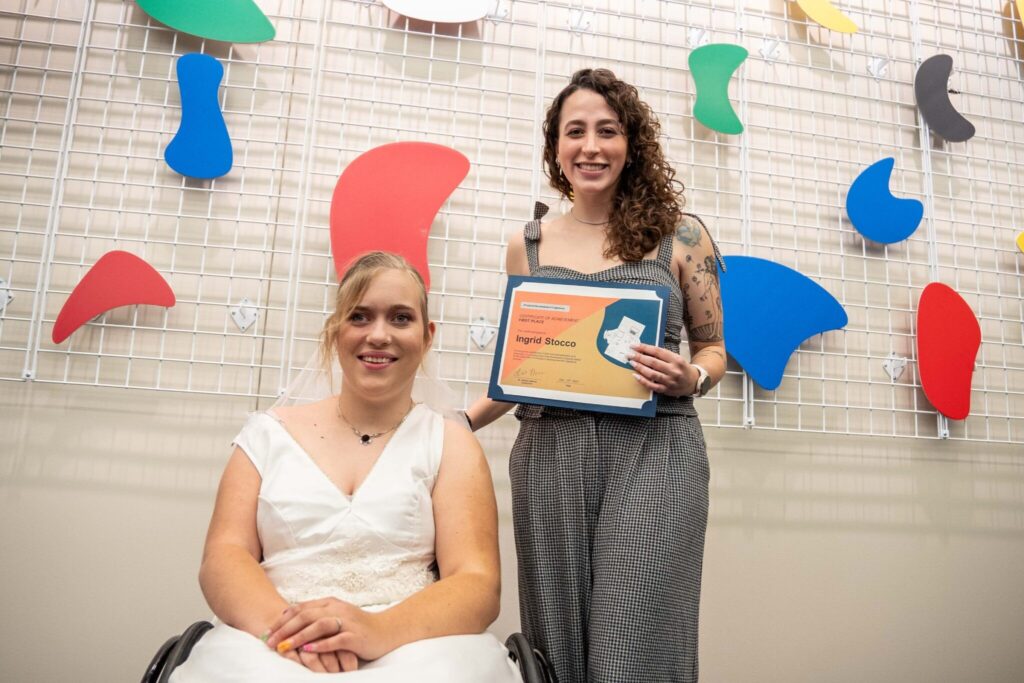
The Department of Design and Merchandising is part of CSU’s College of Health and Human Sciences.